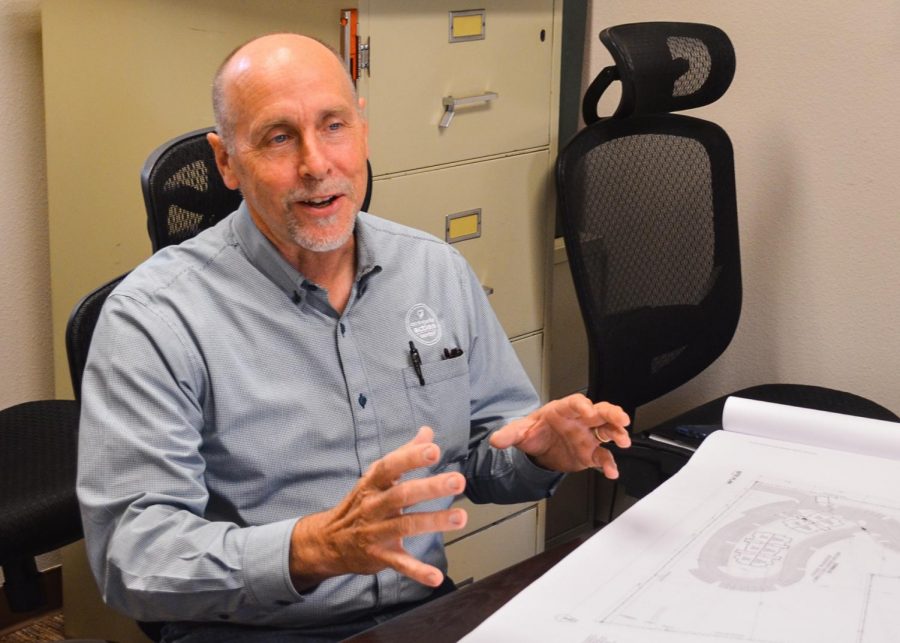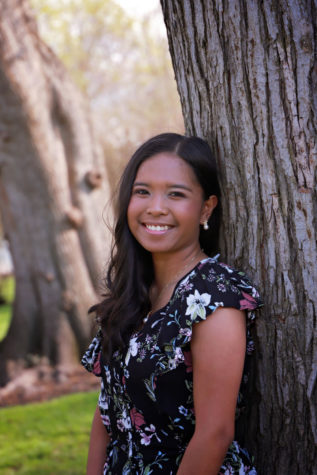Apartment project to aid with affordable housing
Complex estimated at $12 million will provide lower price point
TAYLOR OLSON | DAILY EVERGREEN FILE
Jeff Guyett, Community Action Center executive director, said CAC will remain open during regular business hours.
September 18, 2019
A $12 million project to develop a 56-unit apartment complex on Bypass Drive will open in late 2020 to provide affordable housing in the Pullman area.
The complex is a low-income housing tax credit property, said Jeff Guyett, Community Action Center executive director.
That means investors will be incentivized to help fund the project. In turn, they will receive “a dollar-for-dollar reduction in their federal tax liability in exchange for providing financing to develop affordable rental housing,” according to Novogradac & Company LLP.
A 9 percent tax credit will be granted to the project’s investors.
The CAC received $800,000 from the Washington State Housing Trust Fund in 2018. They also have a construction loan from Banner Bank, Guyett said.
The CAC has been collaborating with Cascade Affordable Housing and R4 Capital, which are groups focused on affordable housing, he said.
Guyett said the complex’s residents will not pay more than 30 percent of their income toward housing.
There will be 28 units set aside for those making less than 30 percent of the median income and 27 units for those making less than 50 percent. Other target groups include homeless families, veterans and people with disabilities, Guyett said.
The apartment’s location will enable residents more access to services including the nearby Pullman Regional Hospital, Walmart, Safeway and the Pullman Village Centre Cinemas, Guyett said.
Residents will receive free case management services, he said. A case manager will work with families or individuals and help them set financial goals or find services such as legal aid, skill training and educational opportunities.
“We help them to set their own goals, and then we help them try to find the resources to achieve those along the way,” Guyett said.
The CAC will also build partnerships that will benefit residents, such as collaborating with the Alternatives to Violence of the Palouse for families dealing with domestic violence if all goes according to plan, he said. Financial literacy and cooking classes are two other efforts the CAC members plan to bring to the complex.
The CAC’s original design had construction costs that were 25 percent over what they planned. They are working with Ross Deckman Architects, but their budget is still 6 percent over than what they projected, Guyett said.
Guyett said the CAC has until Dec. 1, 2020 to have the apartments fully occupied and operational. CAC members plan to start leasing units by October 2020. They, along with investors, will be signing off the $12 million project on Sept. 25. Construction will begin 15 to 30 days after that.
Kevin Gardes, Pullman Public Works director, said the city council has been supportive of the CAC’s projects.
“The city council approved a cost-sharing agreement to help with some utility and street oversizing costs associated with the project,” he said.
Gardes said the city council approved a minimum of $65,000 to help fund some of the off-site costs, such as developing water and sewer lines through the property. The council’s support also helped the CAC gain points in their Housing Trust Fund application, which boosted their chance of receiving funds from them.
A major street will border the property. Gardes said the public works department has been coordinating the street’s development with the CAC. The street will have five lanes, with a 100-foot right of way.
“It would be a major arterial bypass in the southeast quadrant of the city,” Gardes said.
Guyett said the CAC has been working closely with the city of Pullman to ensure environmental and zoning concerns are being addressed. Critical areas like stream and bird habitats surround the complex.
“We worked with [the city] to make sure our site was built, or is going to be built, accordingly to protect that,” he said.
“I just think it’s healthier for us as a community to embrace all members of our community, whether their incomes are low or higher,” Guyett said. “It’s about making sure we’re not leaving people behind.”









